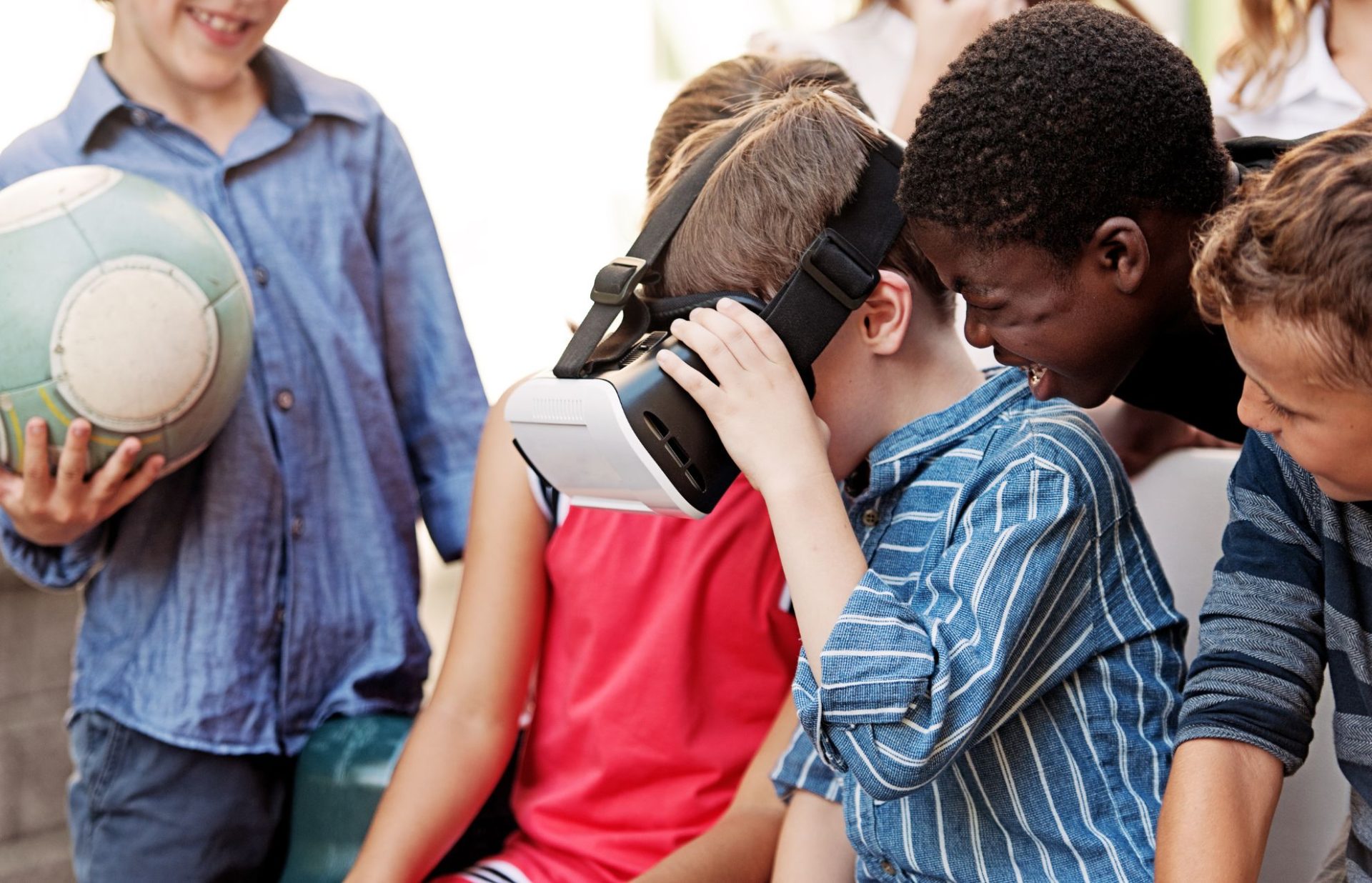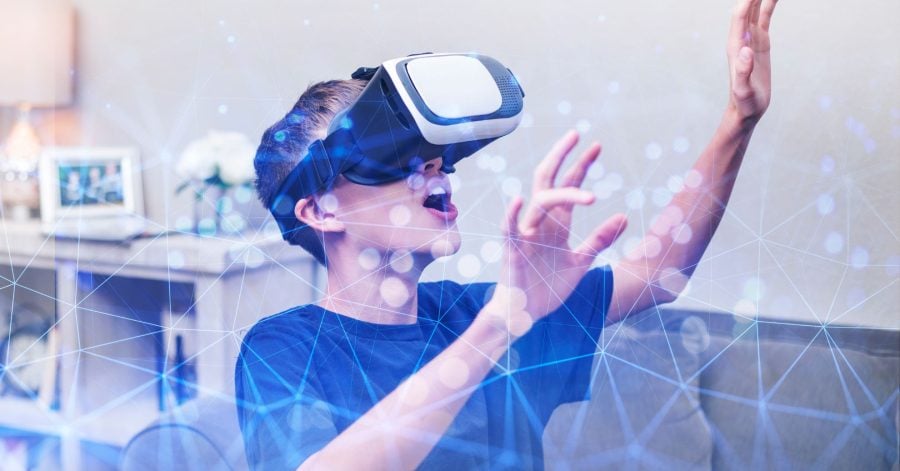How will you remember the summer of 2022? Hopping from one conference to another this scorching season, from the Bucharest Tech Week Metaverse Summit to the Unchain Fintech Festival in the historic citadel of Oradea, Romania, there’s one thing that made me lift my ears like a curious puppy. The tech businesses’ interest in a new target. A young one. One too young for either of the verticals, if you were to ask me.
As it seems, with the rising popularity of blockchain, there comes a new chain reaction of Metaverse products being built to develop a parallel world. And this new world, like the physical one, targets everybody.
But are we mentally prepared for a metaverse for kids? Are our children prepared to draw a barrier between the realms when they can barely face uploading a visual on Instagram and pulling it down if it doesn’t reach 50-100 likes or views in the first hour?
Armed with questions and motivated by curiosity, I reached out to the Romanian therapist, Ioana Dancescu. I am aware that virtual worlds will be part of our lives, just like social networks, Zoom calls, and remote work. But a metaverse for kids?
As a journalist that is also a parent, I want to find out more about this new universe before I can help my child grapple with it. I also doubt that we will be able to take advantage of the Metaverse benefits and skip forward to using it as an escape from our daily lives.
“In every space we enter – a relationship, corner of nature, scroll on social media, an online game, we have to adapt and remain ourselves. More than ever, we are a click away from another world. But, as a society, we have never had as many people suffering from mental health or in need of real connection as now,” Ioana shares with me.

The impact of the Metaverse on kids’ lives
Metaverse can have many benefits for children. It can help them learn new skills faster or experiment with things in a safer way – like making potions in chemistry class or overcoming a fear, such as flying. But this can be done only under the guidance of a parent or a professor to count as an educational experience.
The danger of the Metaverse for kids emerges when they are left to discover it alone. This is similar to allowing small children to watch TV unsupervised, or to spend time online endlessly, without a purpose. Reports have shown it can lead to loneliness, to say the least.
Metaverse, due to the AR and VR technology, can look so real that small children, up to 6-7 years old, might mistake it for reality. Their brain isn’t ready for this, as Cosmin Tronaru, Head of Metaverse at Stakeborg, shared in a previous interview.
“I think it’s dangerous for children under seven to try to understand the Metaverse. My mom is a kindergarten teacher, so I grew up reading books about child development. We’re going to spend our lives with technology in our hands. But in the first seven years of life, the brain just takes everything in like a sponge. The Metaverse might be tricky for small children because it may cause them to lose hold of reality,” Cosmin tells The Recursive.
Since Metaverse is a relatively new topic for therapy, Ioana Dancescu took her time to answer what it is in terms of our psyche. She begins explaining it to me with a parallel between a pool, the online world, and an ocean, the Metaverse.
We are familiar with the benefits and the dangers of the first one, but the second one is waiting to be explored. It lures you to embark on a different adventure than the one you experienced in the physical world.
She tells me that humans can already escape in their minds as coping mechanisms. We have our Metaverse built in. The difference between ours and the external one comes from “the clash between the needs that are the basis of the dissociation from the real world, and the huge potential of the digital world to offer the illusion that we can receive there everything we need or that is missing from our reality,” she adds.
How can we prepare our kids for the Metaverse
Be it in school, at the park, or somewhere online, kids will inevitably be exposed to the Metaverse. So, how can we prepare them with an array of reactions in the physical world to know how to respond in the digital one? How can we help our kids develop the basis of their personality?
Ioana believes that the traditional way is the best. This translates into putting yourself out there in the real world, meeting new people, and experiencing different situations.
When you begin something new, it’s important to have a guide. This must also apply to a Metaverse for kids. Children can count on parents and teachers; while adults can work with mentors, coaches, or therapists.
“To be safe in another reality, to be able to learn to swim in the pool and then take the step towards the ocean, you need a physical, mental, emotional, psychological growth corresponding to your stage of development. This requires that parents stay connected to children and know what they are doing online. There are certain stages of psycho-emotional development, where the parents’ role is important: the one between 6 and 12 years (the stage in which the foundations of what the self-confidence of the future adult means), and the one between 12 and 18 years (the stage of crystallization of personality and identity),” Ioana emphasizes the importance of connection.
The therapist shares that building digital twins can take up a lot of time and might indicate avoidance of reality. We must always be aware that “We are not hungry for information, but we crave attachment. We need assurance that we belong. We want to feel that we are important, wanted, accepted, understood, to name a few.”
As a final note, Ioana Dancescu cites psychologist Gabor Mate, who also believes that the role of parents is to prepare children for the world as it is, with its challenges and dangers. Mate shares in his parenting book that “Synchronization is always the key factor in healthy development. The season of digital connection arrives when the child is sufficiently developed and mature enough to keep his individuality. The moment cannot be specified by a formula, but depends on how well the parents intuitively know the child.”
As the Metaverse keeps developing, parents will have more responsibilities on their plate – learning all about it, and making sure their children are mentally prepared to use it. The virtual will not go away if ignored. As for entrepreneurs building products in the space, they should consider developing kid-safety features in collaboration with therapists and limit usage based on age.







